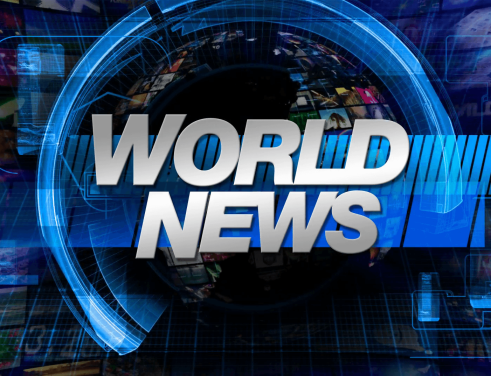- 1.32K Posts
- 307 Comments

 41·19 hours ago
41·19 hours agoSo prison labor for profit is bad now?
It should be a matter of course, but the EU already banned forced labour explicitly this years. The question is rather that we must ensure that the law is enforced.
I assume you agree that they will continue to interfere, but, yes, for now there is reason to celebrate a bit :-)
https://feddit.org/u/petrescatraian@libranet.de
Seems all fine, right?
Pro-EU leader claims Moldova victory despite alleged Russian meddling
Moldova’s pro-EU President Maia Sandu has claimed a second term after a tense election run-off seen as a choice between Europe and Russia. With most votes counted Sandu had won 55%, and in a late-night speech she promised to be president for all Moldovans.
Her rival Alexandr Stoianoglo, who was backed by the pro-Russian Party of Socialists, had called for a closer relationship with Moscow.
During the day the president’s national security adviser said there had been “massive interference” from Russia in Moldova’s electoral process that had “high potential to distort the outcome”.
Russia had already denied meddling in the vote, which came a week after another key Eastern European election in Georgia, whose president said it had been a “Russian special operation”.

 91·4 days ago
91·4 days agoIt would be interesting to hear what the presumptive PM has to say about China’s support for Russia’s war in Ukraine.
Last year, the Chinese ambassador to France said that former Soviet nations had ‘no effective status’ of independence in international law, and he said that Crimea belongs to Russia. Lithuania’s foreign minister, Gabrielius Landsbergis, said back then that "[Chinese] diplomats [should] reminded we [Lithuania] are not post-Soviet countries but countries that were illegally occupied by the Soviet Union”.
On social media, Landsbergis then wrote: “If anyone is still wondering why the Baltic states don’t trust China to ‘broker peace in Ukraine’, here’s a Chinese ambassador arguing that Crimea is Russian and our countries’ borders have no legal basis.”
What does Lithuania’s presumptive PM say about that?
Addition: Don’t give a free pass to Beijing for its aggressive behaviour
[…] The type of influence China exercises is not something we can accept as simply ‘what great powers do’. It launched a cyber attack on the Pacific Islands Forum, spreads online disinformation in the Pacific to undermine democracies and weaken Pacific partnerships, sought security agreements that lack public transparency, and undertaken various other malicious activities—such as hybrid and grey zone operations.
And that’s just in the Pacific—China is carrying out this malicious activity globally, not to mention being the main supporter enabling Russia’s war on Ukraine.
Of course, other significant powers seek influence, but responsible nations don’t behave like this […]

 101·5 days ago
101·5 days agoOr maybe a proxy war of democracies against dictatorships.

 21·5 days ago
21·5 days agoI didn’t miss the point, but this is a different topic. We need to provide housing, end homelessness and possibly the right to a bank account for everyone. These are different things.
Also nobody agreed to protect Ukraine for giving up nukes.
This is irrelevant. We have to do it anyway, no matter whatever they agreed upon 30 years ago.

 41·5 days ago
41·5 days agoLetter: We are in despair at the [UK’s] Labour party’s U-turn on Uyghur genocide ruling
We were deeply disturbed to read your report about David Lammy’s visit to China that highlighted how our Labour government – headed by a human rights lawyer – has decided to backtrack on plans for formal recognition of acts of genocide in order to facilitate trade deals with China […]

 42·5 days ago
42·5 days agoThis is not about ‘neoliberals’ but about foreign malicious actors attacking digital systems for no reason.

 42·5 days ago
42·5 days agoAffordable housing and the threat by malicious actors to attack digital payment systems are two different things. Homelessness has to be addressed, of course, but we are dealing here with something else.

 151·5 days ago
151·5 days agoThis article has been published on 24 February 2020, exactly 2 years before Russia’s full-scale invasion of Ukraine. They may change their mind like Sweden and Norway are doing.
[Edit typo.]

 51·6 days ago
51·6 days agoIn addition to what others have already said, China wants a chunk of Siberia for what it calls the “polar silk road”. Climate change will open the possibility of a navigable Arctic sea route connecting North America, Est Asia, and Europe. Such a route is a shorter and more economically viable transportation option than the current route via the Indian Ocean and the Red Sea. But for this, China needs better access to the Arctic.

 11·6 days ago
11·6 days agoSomeone has posted in the meantime that Norway takes Israel to the International Court of Justice: https://feddit.org/post/4234663

 31·6 days ago
31·6 days agoWhat would one expect from this kind of politician. He has other priorities: After Israel’s Knesset approved final voting for two bills aimed at blocking UNRWA in areas under Israeli control, Geert Wilders congratulated the Jewish state in a Tuesday post on X/Twitter: ‘Well done Israel. Terrorists are terrorists, whatever their disguise.’

 101·7 days ago
101·7 days ago‘Entire population of north Gaza at risk of dying,’ warns UN’s top humanitarian official
“What Israeli forces are doing in besieged north Gaza cannot be allowed to continue,” said Joyce Msuya, acting Under-Secretary-General for Humanitarian Affairs and UN Emergency Relief Coordinator, in a statement […] Hospitals have been hit, health workers detained and first responders prevented from rescuing people trapped under the rubble, she noted. “Shelters have been emptied and burned down…families have been separated, and men and boys taken away by the truckload,” she added.
According to reports, hundreds of Palestinians have been killed since Israeli security forces renewed their offensive in northern Gaza earlier this month. Tens of thousands of people have been displaced again.

 31·7 days ago
31·7 days agoYes :-) Now I’ve got it, sorry.

 12·7 days ago
12·7 days agoThere are even reports in Chinese state-media fyi, but I didn’t want to link to these sources.

 42·7 days ago
42·7 days agoThis is maybe a devastating example why centralization and central planning is a bad and dehumanizing act for individuals in a society. There is a good documentary about China’s so-called “Ghost Children”. These are those who were born as younger siblings during China’s One Child policy.
The documentary was made in 2014. It shows how quickly things can change, and how people suffer now and then due to bad politics.
It’s really worth your time.
China’s Ghost Children – (video, 36 min)
Second or third children born illegally during China’s One Child Policy - implemented between 1979 and 2015 to curb the country’s population growth by restricting many families to a single child - are banned from marrying, having children or simply boarding a train. Condemned to a non-life, these ghost children do not officially exist according to the Chinese state. ARTE Reportage goes in search of these ‘Haihaizi’, those children who should not have been born.
[Edit typo.]

 151·7 days ago
151·7 days agoThis is maybe a devastating example why centralization and central planning is a bad and dehumanizing act for individuals in a society. There is a good documentary about China’s so-called “Ghost Children”. These are those who were born as younger siblings during China’s One Child policy.
The documentary was made in 2014. It shows how quickly things can change, and how people suffer now and then due to bad politics.
It’s really worth your time.
China’s Ghost Children – (video, 36 min)
Second or third children born illegally during China’s One Child Policy - implemented between 1979 and 2015 to curb the country’s population growth by restricting many families to a single child - are banned from marrying, having children or simply boarding a train. Condemned to a non-life, these ghost children do not officially exist according to the Chinese state. ARTE Reportage goes in search of these ‘Haihaizi’, those children who should not have been born.
[Edit typo.]













As a related topic: There is a good documentary about China’s so-called “Ghost Children”. These are those who were born as younger siblings during China’s One Child policy.
The documentary was made in 2014. It shows how quickly things can change, and how people suffer now and then due to bad politics.
It’s really worth your time.
China’s Ghost Children – (video, 36 min)
[Edit typo.]